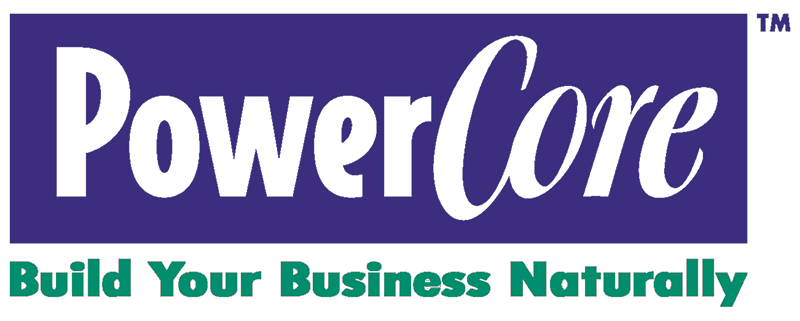What To Say To Get Referrals: WE DID BUSINESS Slips
- Tell us what the difference is for you between On Base and Home Run.
- What differentiates Home Run from Grand Slam?
- If you’re comfortable, share the percentage of each you get from us, and how that compares to other client attraction methods you use.
- Has the ratio changed as you’ve been a Member?

Response from Jim Mothorpe CFP(R)
I consider how much of my expenses are covered by the money deposited in my checking account. An one-time On Base value covers two weeks of expenses, a Home Run value covers one month of expenses and a GRAND SLAM covers a quarter. A recurring monthly On Base value is considered as a Home Run value after one year and a GRAND SLAM after two years or more.

Response from Ken DeRose-Broeckert
from the Peachtree City Team
On base is when I get paid $95.00 for an inspection. A home run is a job that pays up to $1500.00. A grand slam is any job that pays more than $1500.00.
On base is about 40%, Home Run is 35% and Grand Slams are about 25%.
The only comparison I would have to that is when one of my clients refers me. I'd say 60% of those referrals turn into jobs sold but I wouldn't be able to break it down to On Base, Home Runs and Grand Slams.
Yes, for sure the ratios have increased over the years simply because my PowerCore members know me much better than when I first joined and hopefully I've earned their individual trusts over the years.

Response from John Miller
from the Peachtree City Team
For me, the difference between on base and a home run is the complexity of the work. Drafting a simple estate plan with a will, healthcare directive, HIPPA waiver, and power of attorney is an example of on base. A home run would be the creation of a full estate plan, complete with a trust. An example would be a blended family (think the Brady Bunch) where they want to make sure the kids are treated fairly (If one spouse dies and all assets go to that spouse, the assets would then flow naturally to the children of that spouse alone, leaving out the other spouse's children).
A grand slam is when I am able to take one of the worst moments in someone's life and make it easier. It is never easy losing a loved one, but the frustration people have dealing with probate of an estate adds to the stress. Being able to guide someone through those moments to me is a Grand Slam, even though it may not be as profitable as other work.
A trust is an important mechanism, but it is not necessary for most people. Many times, a simple plan with a will is enough to handle the situation, so naturally, that is where most referrals are. About 50% of my referrals are on base. About 25% are home runs. The final quarter are grand slams. This tends to be the same rate across client attraction methods.
The ratio has changed over time as a member. When I started PowerCore, many more of the referrals that I got were grand slams. The ratio was not better because I was better at describing things then. The ratio was stronger because I was missing referrals. A death is easy to see. Learning the referral language that Wendy teaches allowed me to show team members how to guide conversations to encourage others to do some estate planning. In my case, the percentage of grand slams went down, but the number did not, since PowerCore taught me to network better and I started capturing referrals that I was missing before.
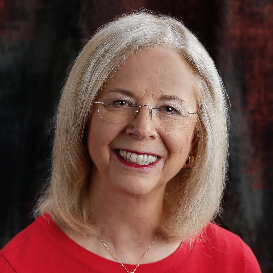
Response from Carol Jensen-Linton
from the Peachtree City Team
In my Juice Plus+ business, the difference between On Base and Home Run is based on the amount of the sale. Orders of Juice Plus+ Complete Bars or Shake Mix are considered “On Base”. Orders of what I call a trio (Fruit, Vegetable, and Berries capsules) is considered a “Home Run”. A Grand Slam is when a person decides to become a partner with me in my Juice Plus+ business. Over my 18 years in PowerCore, the ratio has remained about the same and is comparable to my clients that come to me from other methods.

Response from Brett Vincent
We manage rental homes for clients. Such referrals are solid base hits because the result is steady residual income year after year. We also purchase rental homes and manage our owner properties. Owning real esate is far more profitable than managing other people's real estate. Therefore, the opportunity to purchase a good rental property is a home run.

Response from John Fortener
I don't equate these in a Quantitative manner, rather Qualitative... or more precise, How deep the relationship is or goes. For example, A one time or First time Relationship transaction would be considered On Base. Once I build that relationship and they come back to for another Loan, Whether it be a Refinance or another purchase, or refer me to a friend or family member, then I would consider it a Home Run. And then, for those raving fans, that refer me to everyone they know, I consider those Grand Slams.

Response from Gerald Wessels
from the Peachtree City Team
As one can imagine, realtors don't have as many "we did business" reports as others at the table. However when one does occur, they are generally a grand slam. It is just the nature of the work that we do.
My big aha in this area comes from another drawer in the filing cabinet. For some time it was easy for me to identify 3 drawers. Most real estate agent can quickly tell you that they help people buy, sell or invest in real estate. Granted, you don't need to have 4 drawers just because the typical commercial filing cabinet does, but I wanted that fourth one. Once again, I just needed to think about anything people write me a check. The answer came when I realized that the 4th drawer would be referral fees I receive when one of my clients allows me to recommend an agent for them that is either out of state or in an area of Georgia that I'm not familiar.
This fourth category is an important one because it is certainly more than an "on base" but not as big as a "grand slam." My "home runs" are an essential part of the Wessels Realty Team because I want these people to receive the same great service that I would provide them in my market area!
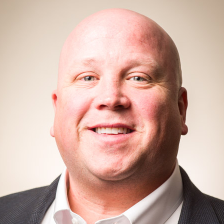
Response from Jon Pierce
from the Peachtree City Team
Our investment structure is solely based off of two elements:
1. Anticipated volume per billing cycle
2. Length of commitment
I consider "On Base" to be at the lower end of the “Anticipated volume per billing cycle” element of the structure. To be at a volume that equals our average client’s volume with a minor devotion plus or minus with at least a quarterly agreement is considered a “Home Run”. A client that is well above the normal volume, doubling or close to doubling, our average client with a preference given to an annual agreement, is considered a “Grand Slam”!
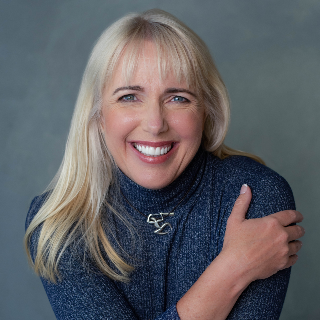
Response from Jessica Walker
from the Peachtree City Team
The thing that mainly differentiates the different WDB levels for me is the duration of the VIP 1:1 nutrition/lifestyle coaching program my client chooses.
- On Base is 3 months of VIP 1:1 coaching. This is my minimum duration that I will work with a 1:1 client. On Base is also any of my Self-Study courses, my "Ask Me Anything" 1-hour Q&A session, or any Dragon Boat race officiating that I'm asked to do.
- Home Run is 6 months of my VIP 1:1 coaching or any private Dragon Boat paddling team coaching
- Grand Slam is 12 months of my VIP 1:1 coaching.

Response from Mr. Jerome Mills
from the Peachtree City Team
The method I use to differentiate between On Base and Home Run is based on a two-tiered system. On Base means the referral sale was within a general monetary range. Comparatively, a Home Run sale exceeds the general range and/or it was repeat business. What makes a Grand Slam different from a Home Run is based mainly on the size of the sale. I rate a sale as Grand Slam when it generates money above expectations. A Grand Slam does not happen often and it typically exceeds normal standards of business. Approximately 75% of my sales are On Base, while 20% are Home Runs and 5% are rated Grand Slams. That ratio has changed since I joined PowerCore more specifically for Home Run business sales.
Response from Megan Byrom
from the Peachtree City Team
For me, an "On Base" would be someone looking for dental, vision, cancer, or other ancillary product. I don't typically sell these individually as they are usually added on to a larget health product. While Medicare standardizes commissions for Drug programs and Advaantage plans, they are comperable to the annual commission on a Medicare Supplemental plan. These would be considered a "Home Run". When someone is NEW to Medicare, an extra commission is paid out on some plans. I would consider those a "Grand Slam".

Response from Greg Verjan
from the Peachtree City Team
Most of our clients start out with being on base.
it's an entry level account that has general pest service
most clients are testing us to see if we are who we claim to be,
they typically go from on base to a home run adding termite service to there services. Once the trust is built with those two services they wil go to a Grand slam getting one more service or adding all ove our services.
50% are on base
50% are Home run to Grand slam
anout 25% of Home run clients become grand slam clients.
all are important to the success of our business because they all pay our employees.

Response from Jason Muldrow
from the Peachtree City Team
For my We Did Business slips I try to follow a criteria that takes in to account the transactional value in relationship to CLV, or customer lifetime value. So one differences between On Base and Home Run would be with one-time project-based transactions. If the total project is valued at a certain amount and or only utilizes 1 or 2 smaller services, then I would typically code that as On Base. However, if the client signs up for multiple ongoing monthly recurring services, then amounts equal to or greater than about a third of a typical project amount, I would code as Home Run, because of the lifetime value generated from the monthly recurring services being provided.
Going from Home Run to Grand Slam is about the difference in having a great client to having an ideal client who essentially utilizes just about all of my services. A one-time project valued at $10,000 or more would be considered a Grand Slam in my book. As for monthly recurring services, if they were investing about a third of that or more per month, then that would be a Grand Slam for me as well.
I have gotten some great clients from PowerCore over the years. About 50% of my On Base clients come from PowerCore and about 20% of my Home Run and Grand Slam clients come from PowerCore as well. Furthermore, I get about 50% of my Home Run and Grand Slam clients through digital marketing, which makes sense since that's what I do. The ratio has remained about the same as far as I can tell throughout the duration of my membership. Being a B2B service provider, I don't expect to see volume with PowerCore, however, I'd be interested to know if there are additional strategies I could utilize to improve these ratios.

Response from Brian Sapp
On base: A new patient appointment or self pay sclerotherapy patient
Or has imaging tests (rule out DVT, Carotid, arterial, etc.
Homerun : New patient who gets diagnostic testing and gets vein procedures.
Grand slam: Complete vein treatment.

Response from Tom Wallace
from the Peachtree City Team
My initial arrangement with my clients is for three months of Foundation Building which would be a Home Run. For those that come to me for consultation on a specific issue for one or two sessions that would be On Base.
Two scenarios would merit a Grand Slam...
1. If they decide to extend our time together into the Accountability and Growth phase for another three months and beyond.
2. If a business would hire me to run a series of Financial Wellness Workshops.
The majority of my referrals are Home Runs across all my referral sources. As I have been with PowerCore for a little over a year, I am still evaluating how membership changes my ratios over time, but as I work with more clients and they see the added value of a longer-term relationship of Accountability and Growth, I am sure the Home Runs will increase over time.
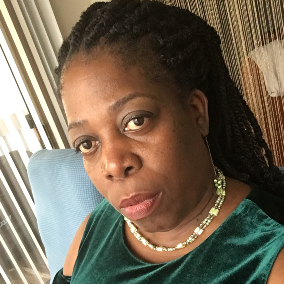
Response from Magneta Gonzalez
Referrals ignite business
man on Base for me would be when a client comes in for their first massage and is pleased. Continuing to come ever month for maintenance is also viewed as on Base
Home Run is when the clients referred another person to me and that person comes in for a massage each week for the next two months because the needs it maybe because of injury or post surgery.
Grand slam would when the referred business is taken to the outside like for eg. Wellness in the office that continues for the year. Like an introduction to other offices who needs wellness at the workplace.
that would create a Grand Slam.
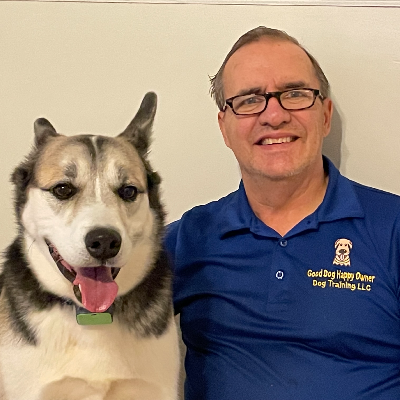
Response from Nicholas Garrison
As a relatively new member of Powercore, I am still trying to figure it out. In speaking with Wendy I believe she told me that a base hit would feed me for a day, a homerun would feed for a week and a grandslam would feed me for a month. So I have been using that as my guidelines. So far I have gotten a couple of base hits and one homerun. Waiting for the Grandslam

Response from Curtis Robinson
As a Managed Services Provider (MSP) we provide managed IT for small and medium sized businesses.
This includes:
- Business Phones and Service
- Cloud Email Service
- Firewall / Networking
- IT Support
An On Base referral would be a referral for one of the businesses lines mentioned above and a Home Run would be if received a referral for more than one of those lines.
A Grand Slam would be a medium sized business with 50 to 100 employees that needed one or more of those services listed above.

Response from Dr. Tracey Huffman
Love the way Jim Mothorpe described this to me. I've been in PowerCore for 9 mos and still didn't grasp it. He said WE define these within our own minds, by how we choose to measure our services.
On base for me is a new patient for an Introductory Session with the Softwave Tissue Regen machine. Intro sessions are at a price advantage for the new patient to see what it is and how it helps.
A home run would be the patient buys a package of 6 sessions after seeing how much they love it.
A grand slam would be they also become a patient for applied kinesiology/chiropractic/wellness care. A patient who wants all the best!
Referrals from PowerCore--On base: 0%, Home Run 60%, Grand Slam 40%
The skills I've developed and the growth as a person I can attribute to PowerCore is responsible for 100% of the business I now acquire. I'm a networking machine and love every second of it! The money just follows!
Response from Brandon Hannon
from the Peachtree City Team
I am new to PowerCore, so my definitions will be continuously optimized as time goes on. Currently...
On Base = Basic Vasper Membership and Home Run = Vasper Membership + Personal Training Package. A Grand Slam is differentiated if its a multigenerational referral or a large personal training package is purchased.
The vast majority of business from the team (and in general) is on base. This has not changed since becoming a member. However, this is OK because many first time clients are not ready for personal training quite yet, and will add personal training after several months of Vasper training.

Response from Phil Terranova
from the Newnan Team
On Base would be when a prospect submits an applicaton to me for a mortgage loan. A Home Run would be when that prospect turns into a client and closes on their loan with me. I only get paid when a loan closes and that amount depends on the size of the loan (the bigger the loan the better). If I quantified it then I would consider a grand slam to be a loan amount that matches the current maximum conforming loan amount or higher. I am still fairly new with PowerCore so I can't compare any percentages at this point but fully expect that to change!
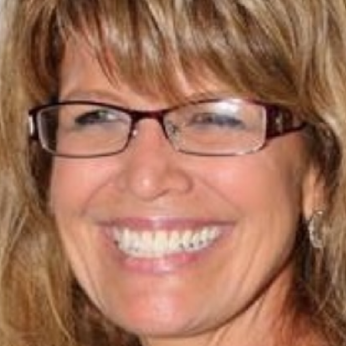
Response from Angie Allison
My "on base" business is writing resumes and other technical type documents. A "home run" is anything on the creative side ... books, scripts, etc. a "grand slam" would be selling a screenplay for a feature film. $2-500k who's up for a story??😌
Response from Jenny Shouse
I am honestly still grasping the "We did Business " slip concept. A home run for me would be going to an estimate and getting the job on spot. As of currently the group has helped me get 2% of my referrals and I am sure it will increase over time.
Response from Dr. Preston Davis
from the Peachtree City Team
For me the difference between an On Base and a Home Run is gaining a patient or connection out of the referral. On Base means that their is a possibility whereas a Home Run would be establishing a connection or having a patient use my services.
What differentiates between a Home Run and a Grand Slam is that a Grand Slam would be someone referring multiple patients into the office. A Home run would be someone sending in a single patient. Likewise, a Home Run one day could turn into a Grand Slam from the patient being pleased with how they are treated and then proceeding to refer their friends and family.
Right now powercore gives a small percentage of referrals to me however I am still new to the group and the referrals are usually Home Runs.
Currently about all of my referrals from powercore have been Home Runs.
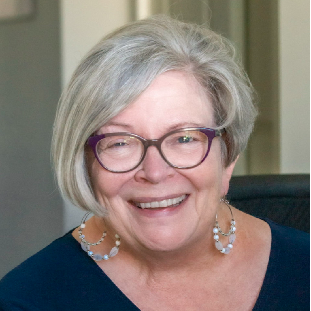
Response from Pat Honiotes
On Base means I have met with someone and they are showing interest in the work that I do and how that work may apply to them.
Home Run means I have met with someone and they have booked, and paid for, a short course or 1:1 program and we have a date to begin working.
A Grand Slam means I have met with someone and they have committed to and paid for either the 6 month program or the 12 month program.
I have only been a member for a couple of weeks so it's hard to give any percentages. I can tell you though that I have had 2 Home Runs because of PowerCore in the last 2 weeks.
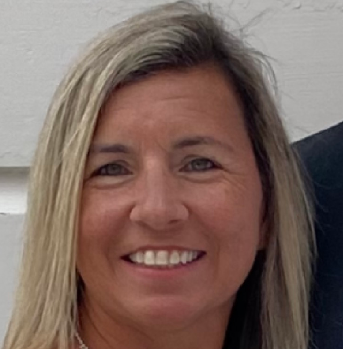
Response from Cindy Hicks
I consider On Base is getting a business refererral. Once I follow through and are working with the client, that would be
a Home Run. If I received several clients from one business referral then I have hit a Grand Slam and my business should only
go up from there!
